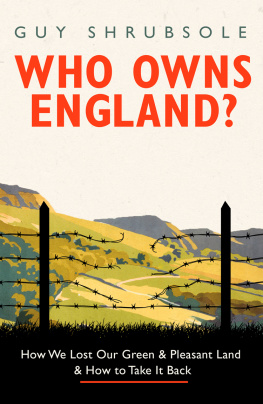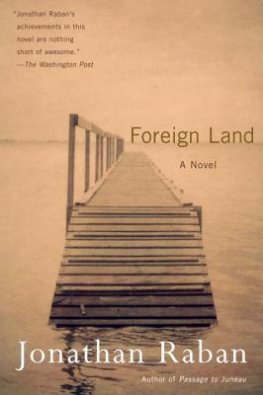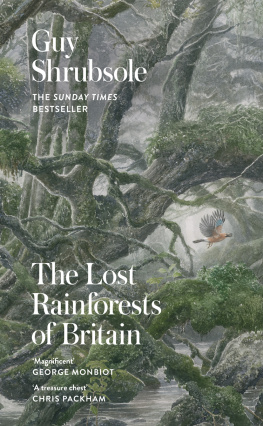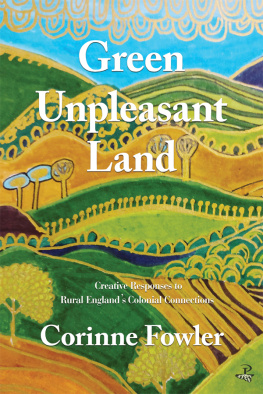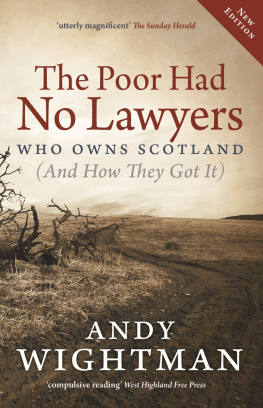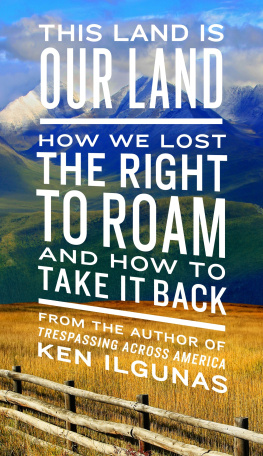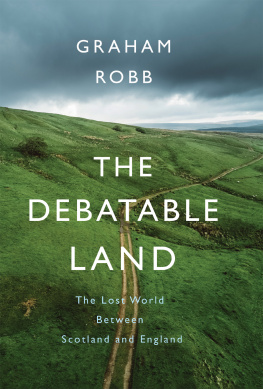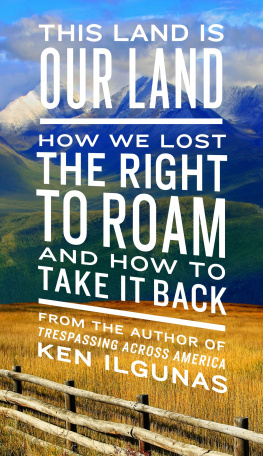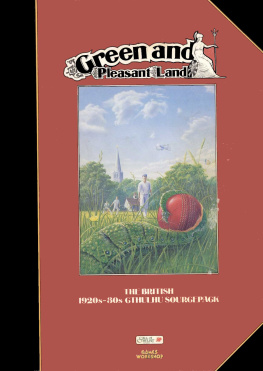Contents

William Collins
An imprint of HarperCollinsPublishers
1 London Bridge Street
London SE1 9GF
www.WilliamCollinsBooks.com
This eBook first published in Great Britain by William Collins in 2019
Copyright Guy Shrubsole 2019
Cover images: Science & Society Picture Gallery / Getty
Guy Shrubsole asserts the moral right to be identified as the author of this work
A catalogue record for this book is available from the British Library
All rights reserved under International and Pan-American Copyright Conventions. By payment of the required fees, you have been granted the non-exclusive, non-transferable right to access and read the text of this e-book on-screen. No part of this text may be reproduced, transmitted, down-loaded, decompiled, reverse engineered, or stored in or introduced into any information storage and retrieval system, in any form or by any means, whether electronic or mechanical, now known or hereinafter invented, without the express written permission of HarperCollins
Source ISBN: 9780008321673
Ebook Edition May 2019 ISBN: 9780008321697
Version: 2019-04-16
Who possesses this landscape?
The man who bought it or I who am possessed by it?
Norman MacCaig
Its often very difficult to find out who owns land in England. Land ownership remains our oldest, darkest, best-kept secret.
Theres a reason for that: concealing wealth is part and parcel of preserving it. Its why big estates have high walls, why the law of trespass exists to keep prying commoners like you and me from seeing what the lord of the manor owns and why the Governments Land Registry, the official record of land ownership in England and Wales, remains a largely closed book. The geographer Doreen Massey once observed that the secrecy surrounding land ownership was its political sensitivity.
Owning land has unique benefits. The inherent scarcity of land means its almost always a solid bet for investment. Buy land, quipped Mark Twain, theyre not making it anymore. Own some land, particularly in a valuable location, and youre pretty much guaranteed a steady stream of rental income from it whether by leasing it out for farming, or building flats on it and charging tenants rent.
In fact, a landowner need not do anything to make a profit from their land. the greatest of monopolies, raged Winston Churchill in a blistering polemic penned in 1909. Consider, wrote Churchill, the enrichment which comes to the landlord who happens to own a plot of land on the outskirts or at the centre of one of our great cities. The landowner need only wait while other people work and pay taxes to make the city grow more prosperous: building businesses, installing roads and railways, paying for schools and hospitals and public amenities. All the while, Churchill growled, the land monopolist has only to sit still and watch complacently his property multiplying in value, sometimes manifold, without either effort or contribution on his part; and that is justice!
And thats why land and who owns it lies at the heart of the housing crisis. Its not because bricks and mortar have suddenly become incredibly expensive. Its because the value of the land itself has gone through the roof. According to the Office for National Statistics, the value of land in the UK has is now locked up in land, dwarfing the amounts vested in savings.
Who owns land matters. How landowners use their land has implications for almost everything: where we build our homes, how we grow our food, how much space we leave for nature. After all, were not just facing a housing crisis. Were also in the throes of an epoch-making environmental crisis, with our land scoured of species and natural habitats after decades of intensive farming. Our unsustainable food system is not only contributing to poor health; it also faces the biggest upheaval in generations thanks to Brexit. And all the while, our society has grown obscenely unequal, with wealth concentrated in the hands of a tiny few including the ownership of land.
Politicians used to understand this. A century ago, the Liberal Chancellor of the Exchequer, Lloyd George, declared: into everything the food the people eat, the water they drink, the houses they dwell in, the industries upon which their livelihood depends. Yet most of the land is in the hands of the few. But today hardly any politicians even mention land in their speeches, let alone lift a finger to do anything about it.
Talking about land ownership has been taboo for far too long. Raise it in public debate, and sooner or later youre accused of the politics of envy. But its not a sign of envy to ask questions about how we might best use and share out our most scarce common resource. It should just be common sense. Questioning why the Duke of Westminster, for example, has come to own so much land isnt meant as an attack on him as a person. As Churchill said of land monopolists: I attack, it is the system.
I first got interested in land because of the fact were destroying the living world around us. Landowners like to portray themselves as wise stewards of the earth, but all too many of them abuse their property for short-term profit despoiling habitats and wiping out wildlife in exchange for such things as coal mines, quarries and new roads. Later, after moving to London and paying stupid amounts of rent to landlords for a roof over my head, I started to see how land isnt simply a rural issue, out there in the countryside, but one that underpins how we all live. Homes have become assets, rather than places to live. Somethings gone badly wrong when a country tolerates thousands sleeping rough on our streets every night at the same time as allowing thousands of homes to lie empty. Who owned those empty properties, I wondered. Who owned the vast tracts of countryside from which our birds and insects had been carelessly eliminated? I wanted to find out.
When I started investigating who owns England, however, I was astonished by how difficult it was to answer such a simple question. The pervasive secrecy around land ownership made me suspicious; what was there to hide? Why were large landowners so coy about revealing what they owned, and public authorities so reluctant to make the information available?
As I dug into the issue, I decided to start a blog to share what I found, whoownsengland.org. The response was overwhelming. Almost immediately I was inundated with offers of help from people offering snippets of information about landowners near where they lived, to data experts offering hours of their spare time to help crunch the numbers. Indeed, this book was only made possible thanks to a growing movement of data journalists, coders and campaigners, determined to set information free and put land back onto the political agenda: I try to pay tribute to many of them in the acknowledgements section.
In particular, early on I started collaborating with the computer programmer and data journalist Anna Powell-Smith, who became the Technical Lead on whoownsengland.org. Shes helped unlock the complex Land Registry datasets needed to investigate ownership, built many of the maps on the site, and advised extensively throughout. Im extremely grateful to Anna for the coding wizardry and deep knowledge of data that shes brought to the project.
This book is about who owns England, how they got it, and what that means for the rest of us. Its part detective story, part history book, and part trespass through Englands green and pleasant land. The books subject, as its title states, is England, rather than Britain or the UK as a whole. Sometimes, in order to tell the story of Englands landowning elite, Ive strayed into the other nations that make up the UK for example, to touch upon the huge Highland estates that many English lords have acquired over the centuries. At times, the nature of the available information has also made it hard to disaggregate figures on land ownership by nation: the Land Registry, for instance, covers both England and Wales, and the data it provides remains frustratingly opaque. Wherever possible, however, Ive broken down the statistics by country to concentrate on England alone, or else sought to make clear where the numbers refer to other nations too.
Next page
